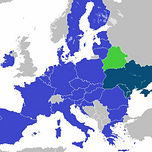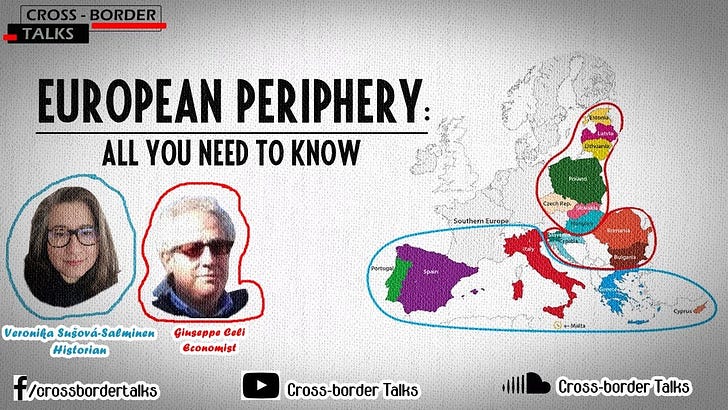The second episode of Cross-border talks discusses the large issue of EU's place in international relations. There have been growing discussions of the need for EU strategic autonomy - a concept, promoted by the French president Emmanuel Macron. To learn more about that Malgorzata Kulbaczewska-Figat and Vladimir Mitev discuss with Sergiu Mişcoiu in the segment called "Dispatches from..." - a Cluj Napoca-based Romanian expert on international relations and a high-ranking university professor. Mişcoiu defines the concept, explains which are the Euro-Atlanticist and the autonomist countries in the EU, and goes further into commenting on possible international partners for a strategically autonomous EU. He also comments on the idea of a possible Polexit (Polish leaving of the EU). A conclusion to be made is that still many Europeans don't feel need to detach from the umbrella of the US military. In July 2021 the European Comission was expected to present a report on EU open strategic autonomy, but it is getting delayed for the autumn and it looks like its autonomous message is getting diluted. In any case, the EU advanced towards obtaining more hard power and playing more often Real Politik in international relations. In the Crossroads Post segment Malgorzata Kulbaczewska-Figat makes a thorough analysis of the changing EU attitude towards the countries of the Eastern Partnership. As seen from the 17th Batumi International Conference, which took place on 19 July 2021, three countries of the EU Neighbourhood obtain the status of excellent students in their EU association - Georgia, Ukraine and the Republic of Moldova. Three others - Belarus, Azerbaijan and Armenia don't seem to be charmed by the EU and by Europeanization. In a talk with Vladimir Mitev Malgorzata-Kulbaczewska-Figat explains what are the policy decision at the Batumi International Conference, why the EU changed its approach to the Eastern Partnership, what is the American interest towards the three countries, to whom is Russia cozier - to the USA or the European strategy and what is the role of the frozen conflicts. Finally, Malgorzata speaks about the perspective before the common people of the three countres - it looks like their life prospects are pretty much related to emigration and work in the EU.
© 2025 Cross-Border Talks
Substack is the home for great culture













Share this post